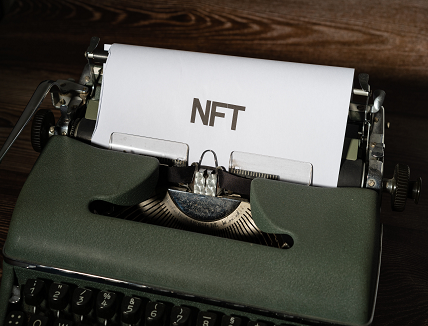
With the growing popularity of NFTs in all sectors, from digital art to the gaming industry and even in virtual real estate, it should be no surprise that they are also becoming more prevalent in the music industry. This blog post will explore NFTs and their benefits in the music industry, so read on to find out more.
What are NFTs?
Non-Fungible Tokens (NFTs) may be new and dizzying with a name like that – but the concept behind them is fairly easy to understand. Essentially, at their core, they’re digital assets stored and secured on the blockchain. They are non-interchangeable, meaning that each NFT is completely unique from all others – a quality that makes them ideal for digital assets like art, music, gaming assets, and other digital collectibles.
NFTs are easily transferable and can be bought and sold on the blockchain, allowing users to trade digital goods easily. Plus, due to their nature and the tech behind them (the blockchain technology used), they’re great for generating digital scarcity and tokenizing forms of digital assets. Perhaps most remarkably, NFTs are also becoming much more popular in the music industry, as artists are using them to further monetize their music and create special new experiences for fans – such as virtual concerts, among others.
Benefits of NFTs
Thanks to the tech driving them and their unique nature, NFTs offer many benefits for music fans, artists, and even businesses. The most notable benefit is that they can monetize music and other digital assets, as mentioned above, which is especially important for independent artists who don’t have access to traditional music streaming services.
Furthermore, NFTs also develop a sense of digital rarity, as each NFT is 100% unique and limited in supply. This creates a level of exclusivity that can be attractive to music fans and collectors. In addition, these tokens provide security that isn’t always available with traditional digital assets. Because they’re stored and secured on the blockchain, this makes them virtually impossible to counterfeit or steal.
NFTs in the Music Industry
As mentioned above, NFTs are becoming immensely popular in the music industry since they allow artists to monetize their music and offer exceptional experiences for fans. Diving deeper into this topic, one of the most popular use cases for music NFTs is the creation of limited-edition music releases.
Artists can create limited-edition versions of their music that can only be bought by a certain number of people, which provokes this previously discussed sense of rarity. NFTs also offer other digital experiences for fans; artists are even creating music NFTs with exclusive rewards, such as VIP experiences, exclusive merchandise, and behind-the-scenes access.
Collecting and Trading NFTs
Acquiring and trading NTFs are fairly easy in today’s digital age; they can be bought, sold, and traded on the blockchain, thanks to its technology. This ease of purchase and trade has led to the creation of a highly active market for trading NFTs, much like what has happened with cryptocurrencies. If you’re looking to get started with NFTs, many resources are available, along with plenty of guides on crypto wallets to manage transactions – like this one on the critical aspect of proof of reserves at OKX.com.
In terms of the music sector, though, collecting and trading NFTs is becoming widespread. In what context? Well, music fans are beginning to collect limited-edition music NFTs, as mentioned, but they’re also trading them with other collectors once they’ve acquired ownership. This is also how the active market has come to fruition, enabling fans worldwide to not only collect, buy, and sell their collectibles but also trade them – all thanks to the unique power of the NFT.
Conclusion
Ultimately, NFTs are shifting the entire music industry and opening up unseen new opportunities for artists, music fans, and businesses. So, if you’re looking to unlock the potential of music NFTs, understanding the different types and use cases of music-related NFTs is a significant first step.











